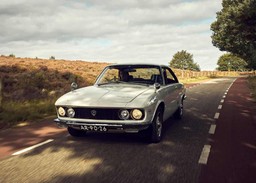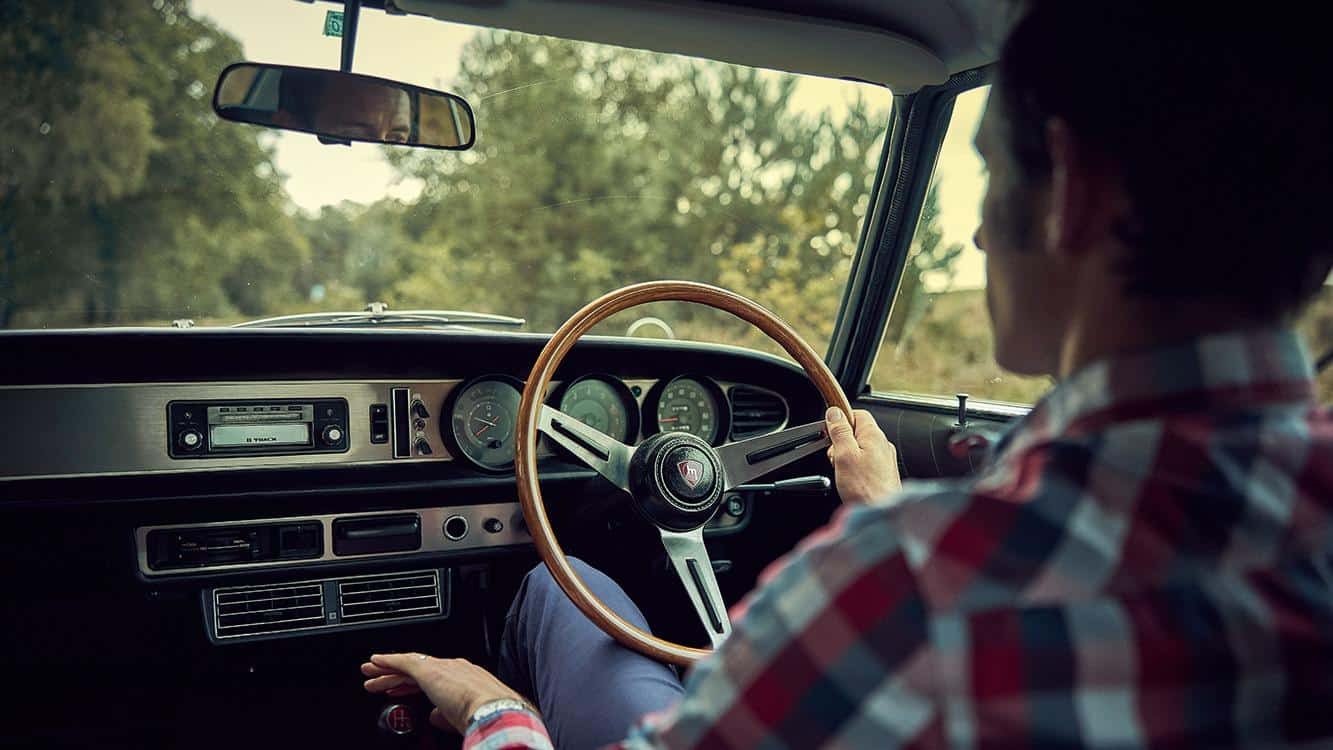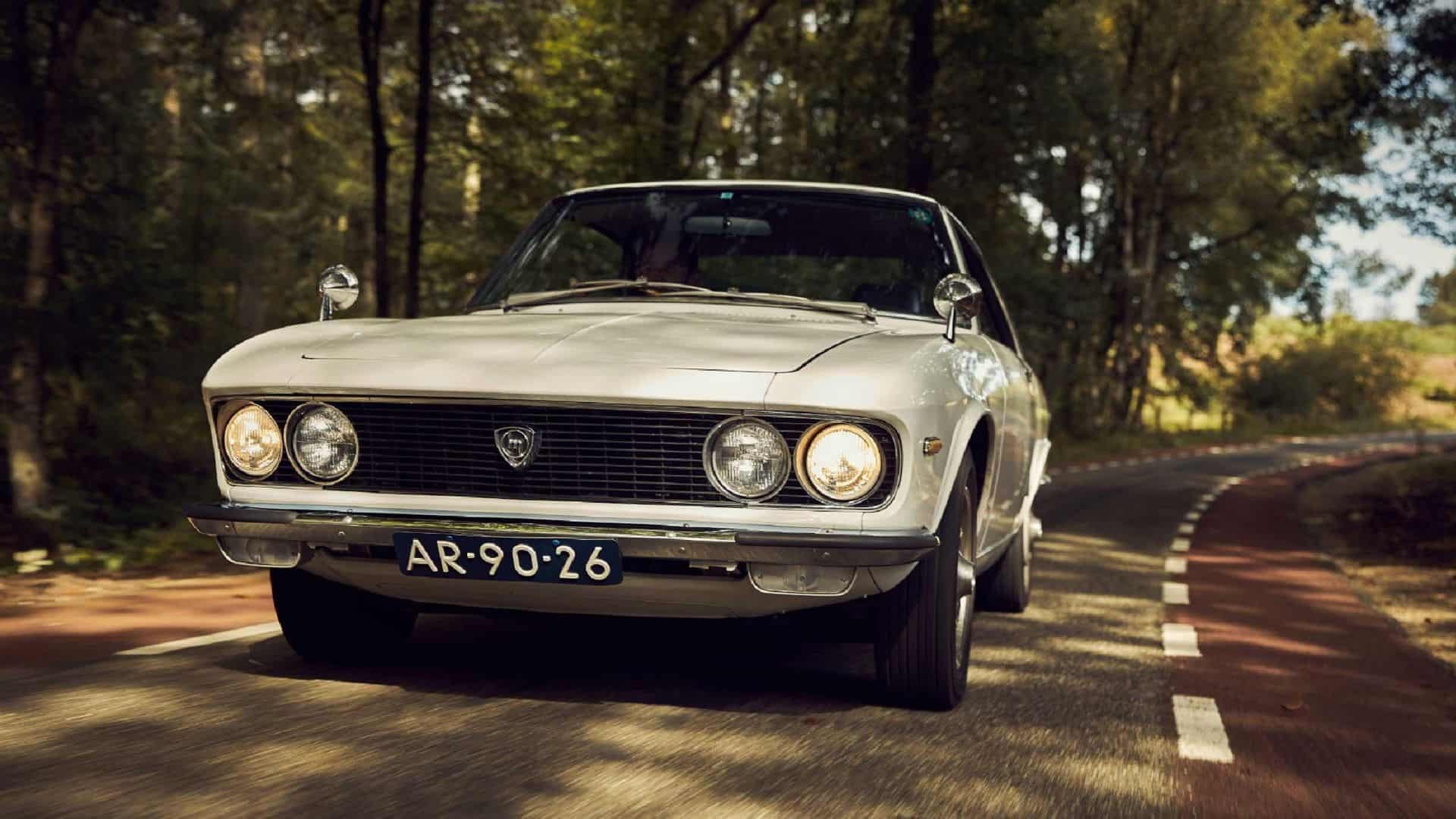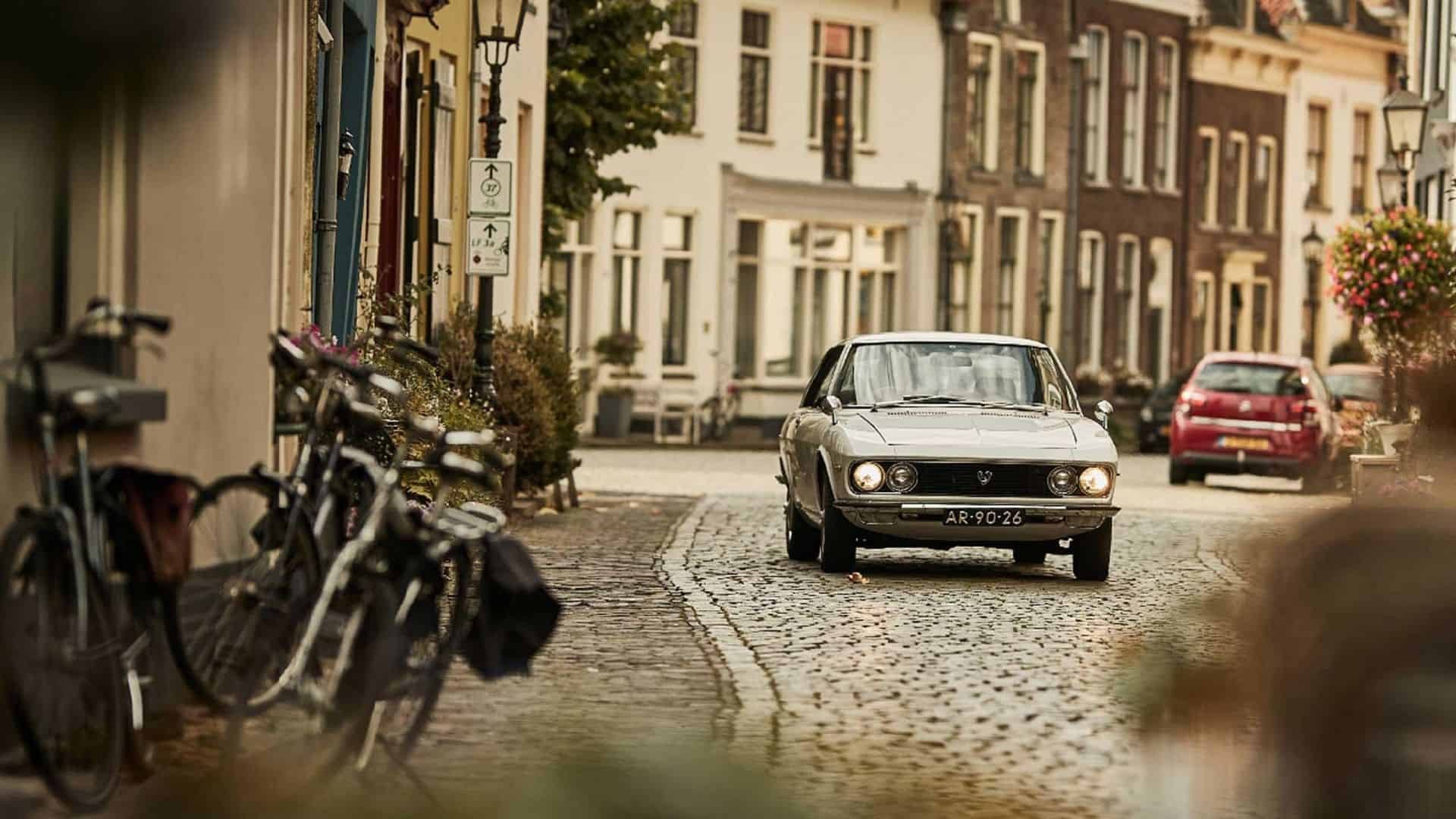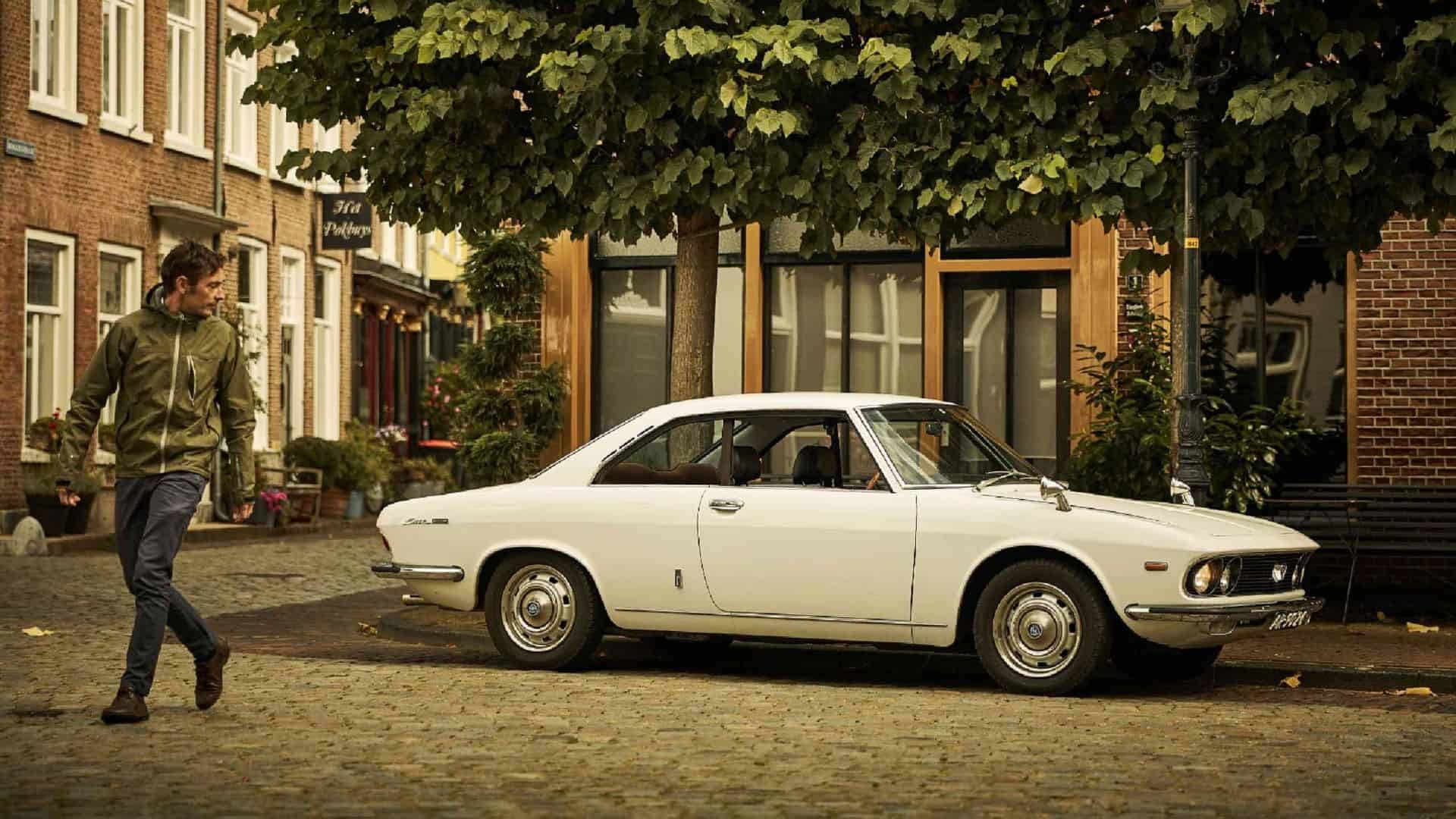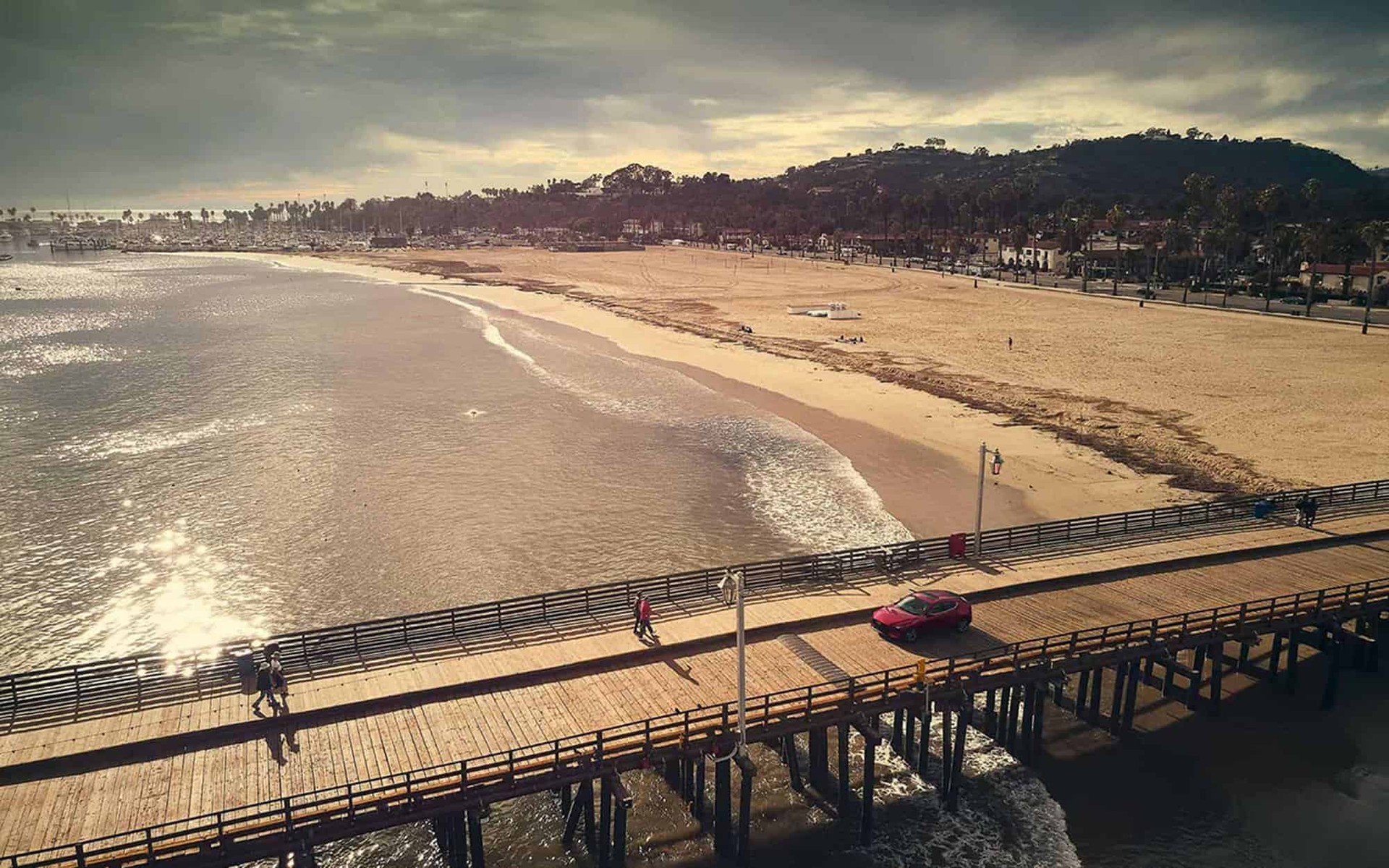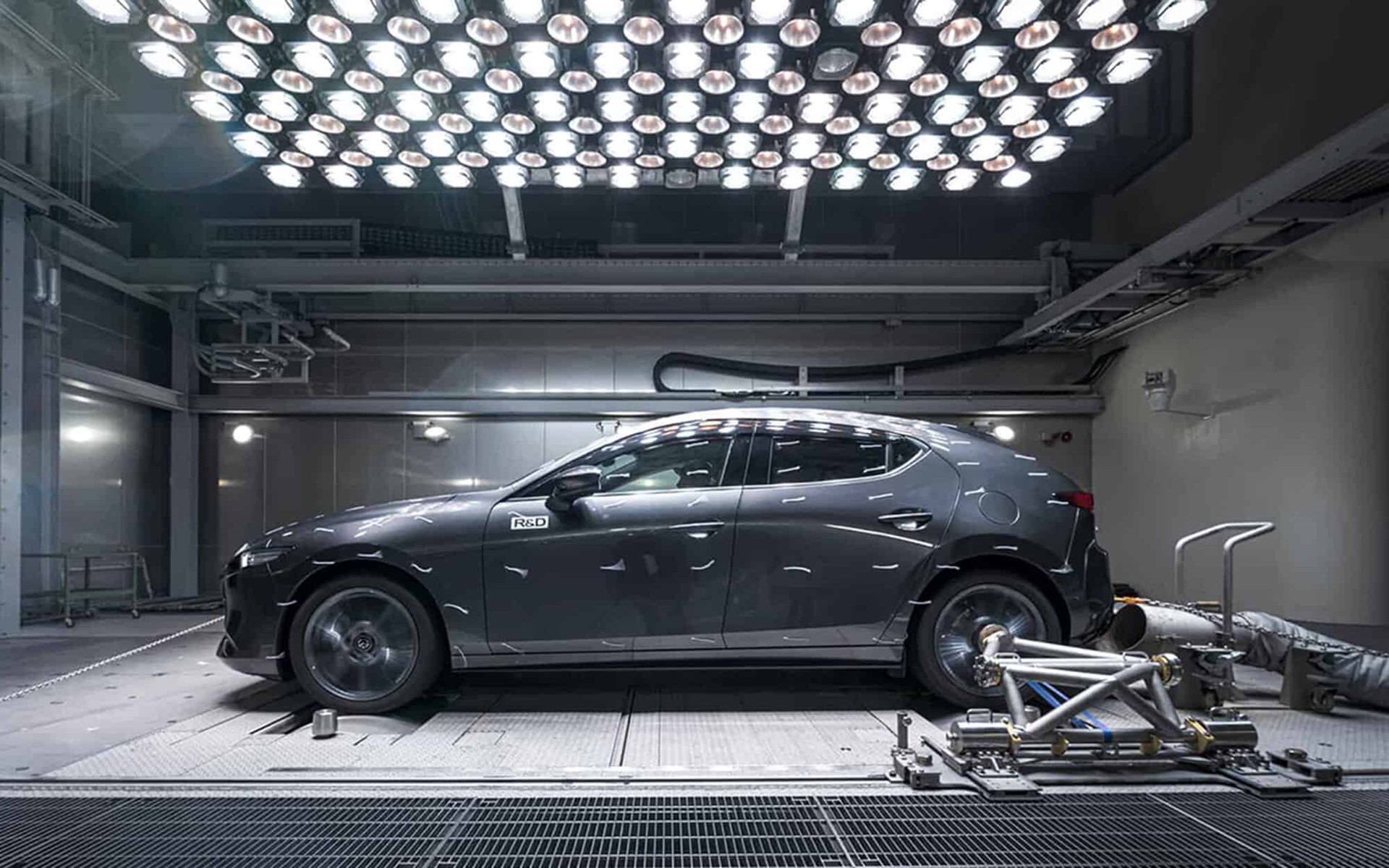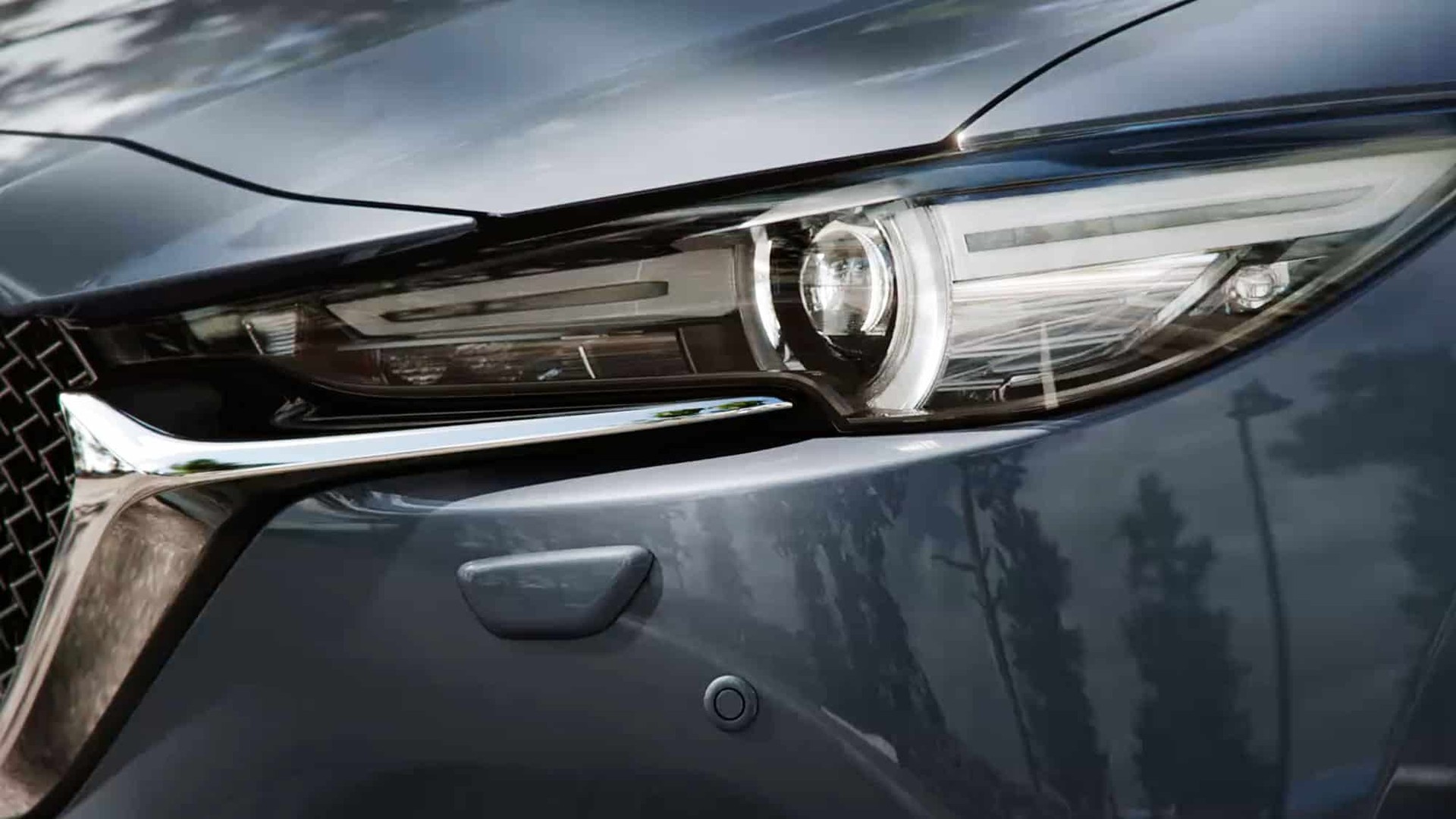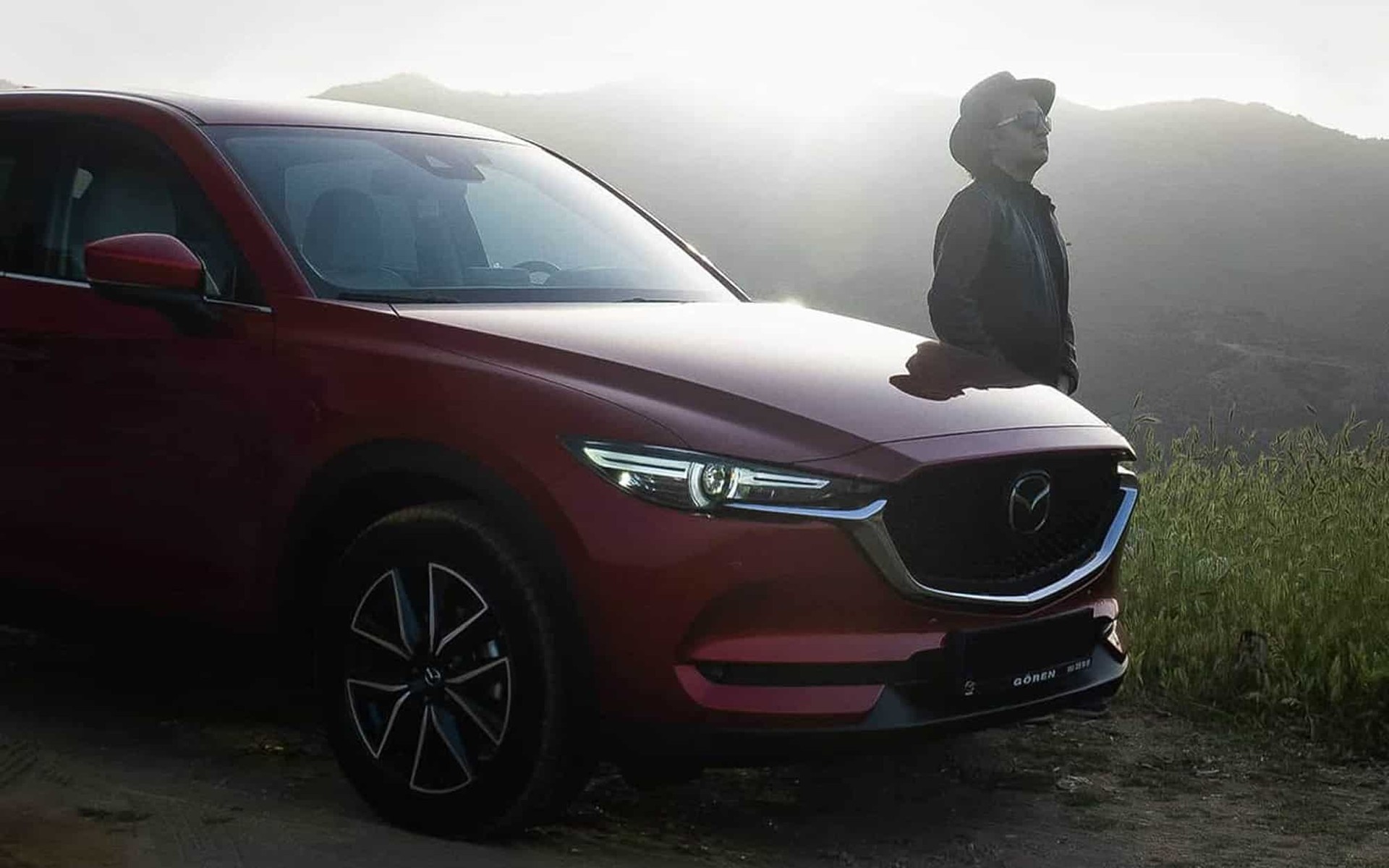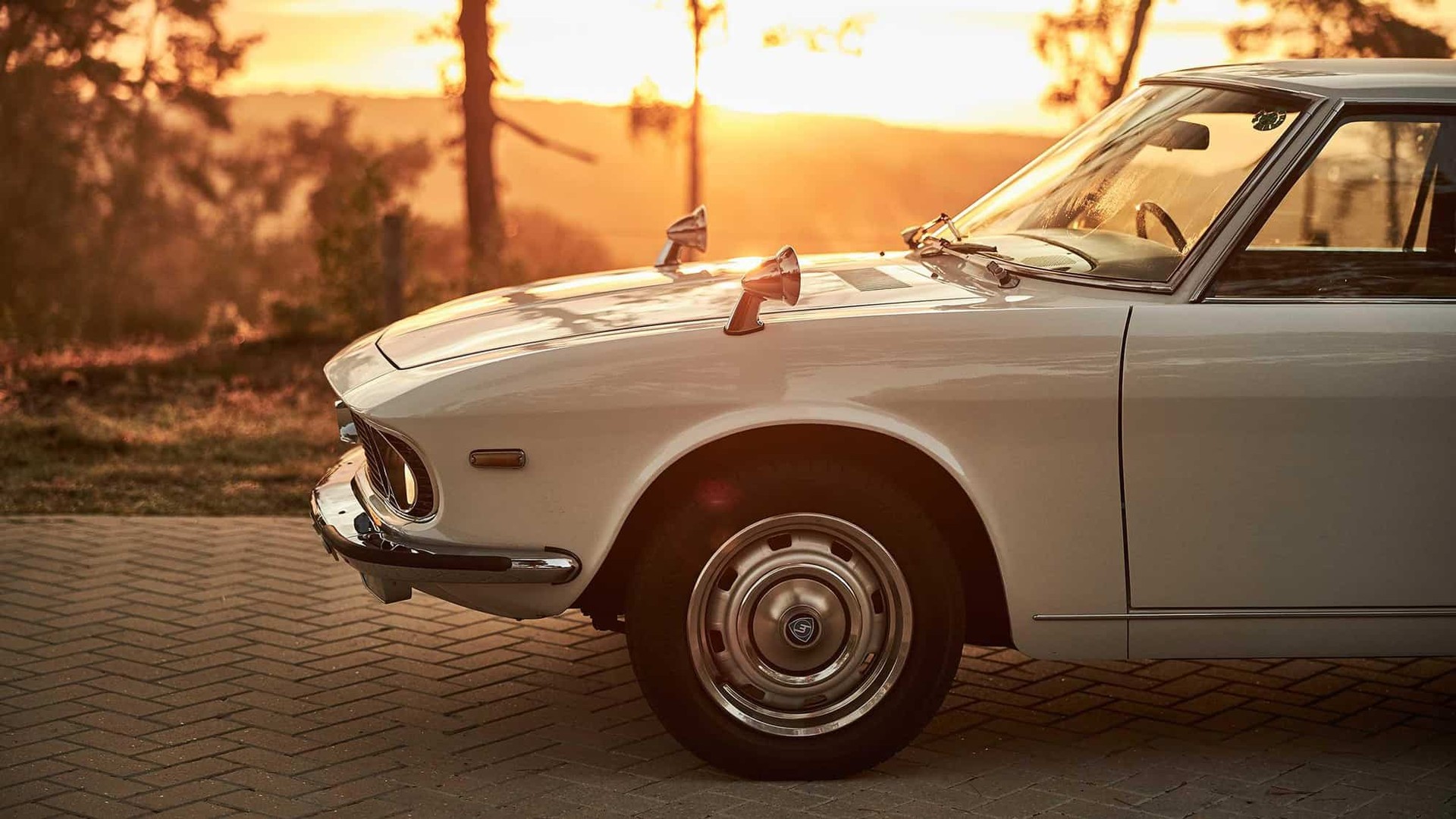
EXPLORE
Celebrating the Mazda Luce Rotary Coupe
Launched over half a century ago, the rare and exclusive Luce Rotary Coupe perfectly embodies Mazda’s traditions of bold engineering and beautiful design.
Luce is Italian for light and, watching soft rays of dawn sunshine play off the exquisite lines of the Luce Rotary Coupe [R130], I can appreciate Mazda’s inspiration for choosing the name. There’s a deceptive simplicity to the look of this car, the graceful arc in the line running from nose to tail and chrome detailing set off to perfection by the morning light.
But it’s more than just pretty. As with modern Mazdas, the Luce Rotary Coupe uses the shapes and contours of its bodywork, and playful flourishes inside and out, to convey its underlying innovative technology. On a September morning in the Netherlands, we get to know this intriguing vehicle and dig deeper into its history to discover how it earned the moniker Lord of the Road.
The original sedan version of the Luce arrived in 1966 and was the undoubted flagship of the Mazda lineup, with its name reflecting the Italian-inspired looks and broad influence of European styling across the car industry at the time. Mazda adapted the signature look of Italian design house Bertone to suit its home market in Japan, but the Luce also announced the brand’s ambition to appeal to an outward-looking, global audience.
At the same time, Mazda was also perfecting the rotary engine, which remains an iconic technical signature and embodies the company’s continuing determination to push forward with new and innovative powertrain solutions. The Cosmo Sport had already introduced the sporting potential of rotary power to the world in 1967.
“The Luce Rotary Coupe’s smooth, unique driving style is due its engine’s internal parts spinning, rather than moving up and down.”
Two years later, the Luce Rotary Coupe combined the style of the sedan and the technology of the Cosmo to promote another virtue of this revolutionary engine—refinement unique in its sector. While the sedan version stuck with a more conventional engine and mechanical layout, the coupe took a more radical path, befitting its status as the pinnacle of the Mazda range and a car to aspire to.
I appreciate these qualities as I drive the Luce Rotary Coupe on country roads in the northern Netherlands. Anyone who’s driven a rotary Mazda will understand the sensation but, fundamentally, the Luce Rotary Coupe’s smooth, unique driving style is due its engine’s internal parts spinning, rather than moving up and down.
The engine purrs with a sense of effortlessness not found in any conventional powerplant. And it all feels so refined, the twin-rotor engine delivering 126 hp via the front wheels—the first and only time Mazda used this configuration with a rotary engine and an impressive output for an equivalent displacement of 2.0 liters.
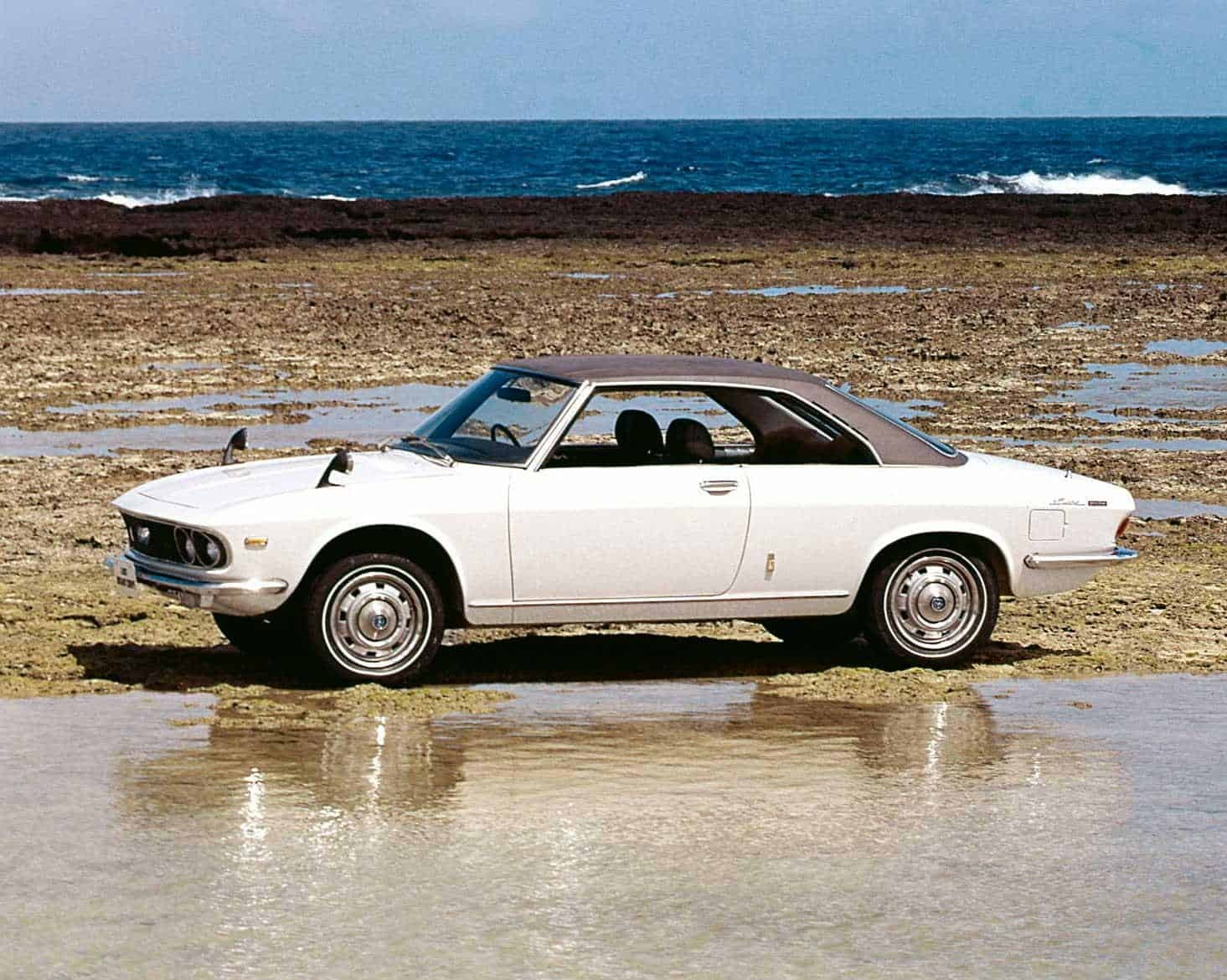
LORD OF THE ROAD
With fewer than 1,000 models built in a production run of just over two years, the Luce Rotary Coupe is one of the rarest Mazdas ever. In its day, it was the embodiment of luxury, technology and exclusivity—attributes it still represents more than 50 years later, proudly celebrating Mazda’s heritage as a leader in both engineering and design. The rotary engine is a variation on a defining Mazda technology: the 13A twin-rotor motor evolved from the design first presented to the world in the 1967 Cosmo Sport, but only ever featured on the Luce Rotary Coupe. Originally sold in Japan, this car found its way to the UK before being restored by Mazda Netherlands.
With a maximum speed of 118 mph, the Rotary Coupe was significantly faster than the Luce Sedan and equal to the overtly sporting Cosmo in terms of outright performance. But the experience is less about the numbers and more the sensations you get from driving it. This is a mature car that encourages a measured, elegant driving style. Instinctively my grip on the thin, wooden rim of the steering wheel is relaxed and I steer with my fingertips, punctuating my progress with precise sweeps of my left hand as I guide the slender, floor-mounted shifter through the four forward gears.
The front-driven layout means safe, predictable handling while the suspension deftly manages everything from speed bumps to cobbles. The combination of impressive performance and a sense of unhurriedness is unique to this car, and fits perfectly with the sophisticated exterior appearance.
Returning to the original theme, light plays an important role in the Luce experience inside as well as out. Only a little longer, but much narrower, than the Mazda3, the car feels impressively spacious, thanks in part to the wide sweep of the windshield, low beltline and lack of front vent windows.
There’s a sense of roominess in the cabin too, and although the Luce features air conditioning among its luxurious appointments, I enjoy the opportunity to drop all four windows, with the lack of side pillars opening the space within.
There are many lovely details to enjoy throughout the car. The Luce Rotary Coupe script on the flanks is repeated on the dash, the Mazda logo at the centre of the wheel, the key and the hubcaps: a neat representation of the three-pointed lobes spinning away inside the engine. Mazda was proud of its achievement with the rotary, and didn’t want owners to forget they were piloting something special.
Not that there was ever any danger of that. Ownership of a Luce Rotary Coupe was an honour reserved for the fortunate few who could afford it, the pricing out of reach to all but the most well-heeled of customers. Nonetheless, Mazda was keen that everyone should share the joy. In addition to being available at regular dealerships, the car was displayed in major department stores across Japan, an early example of pop-up marketing. This cemented the Luce Rotary Coupe’s position as the flagship of the brand, while also demonstrating what Mazda was capable of, and inspiring its engineers and customers alike.
Today the opportunity to drive a Luce Rotary Coupe is an even more exclusive experience than it would have been when the car was available new. Given its rarity, the chances of ever seeing one out and about are remote, let alone being allowed behind the wheel. For today, at least, I am starting to feel like a lord of the road myself.
Words Dan Trent / Images Pim Hendriksen
find out more
Lord of the Road
The Luce Rotary Coupe has more in common with today’s Mazdas than you might realize…
